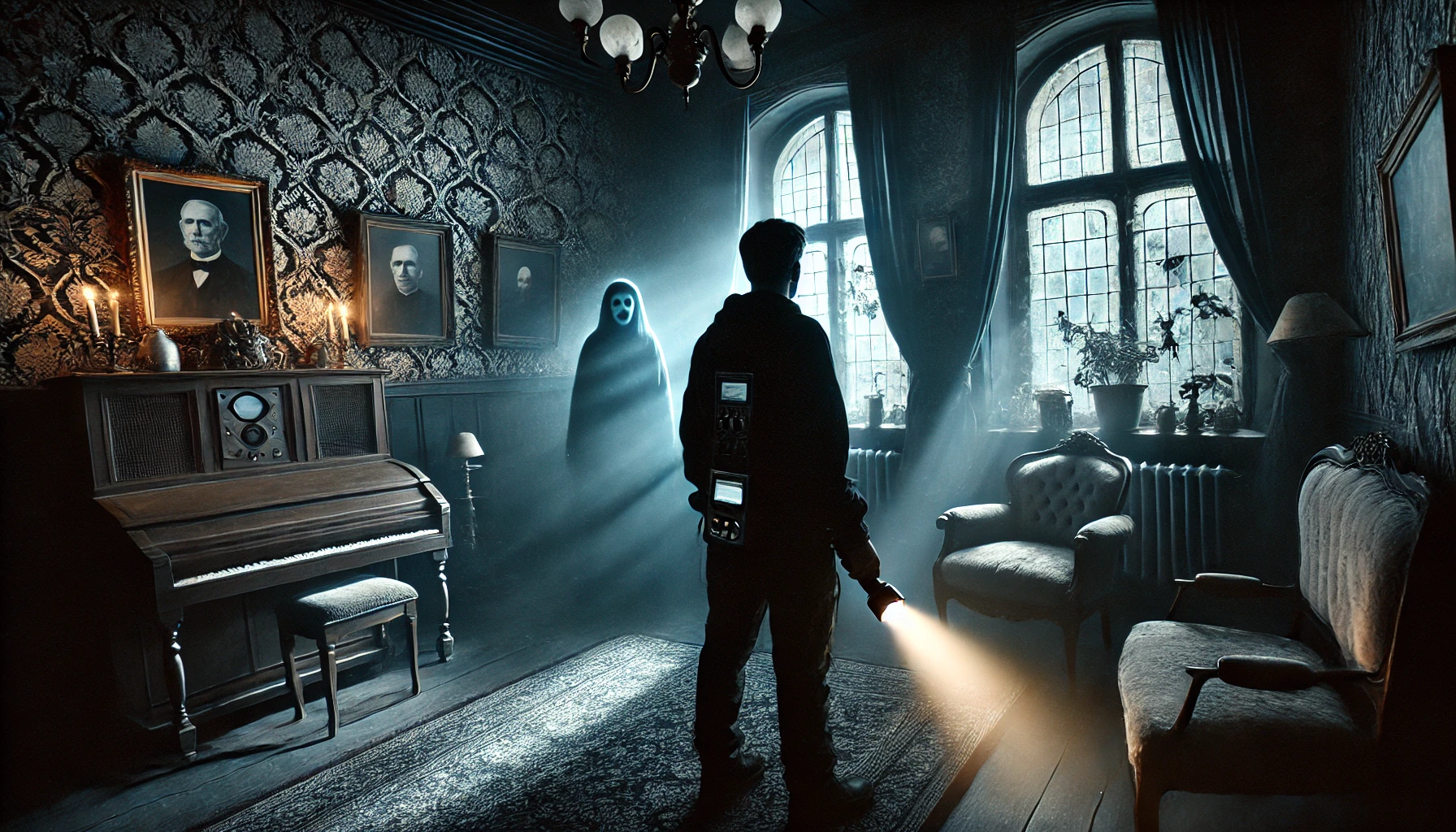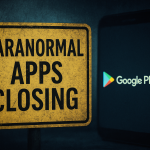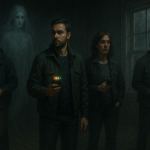When skeptics or non-believers visit haunted locations, they often do so with the mindset that they will either debunk the paranormal claims or, at the very least, prove that no supernatural activity exists. However, there are times when these individuals, armed with their skepticism, fail to capture the kinds of tangible evidence that might convince them of the presence of ghosts or spirits. This phenomenon raises the question: Why might skeptics not experience or record evidence during their investigations at supposedly haunted locations?
1. A Closed Mind Can Be a Barrier to Perception
One of the most significant factors in whether someone perceives paranormal activity is the openness of their mind. Skeptics often approach investigations with the assumption that ghosts or spirits do not exist, which can result in a mental block that prevents them from noticing unusual phenomena. Human perception is complex and we tend to filter information through the lens of our beliefs, expectations, and prior experiences.
When a skeptic enters a location with the firm belief that nothing will happen, their subconscious may dismiss or rationalise subtle signs of paranormal activity. Unusual sounds, cold spots, or flashes of light might be dismissed as coincidences or easily explainable occurrences, thus missing opportunities to record potentially meaningful evidence. In contrast, individuals who believe in the paranormal are often more attuned to these sensations and are more likely to interpret them as signs of the supernatural.
2. The Influence of Environment on Sensory Perception
Haunted locations are often old, abandoned, or naturally eerie places; factors that can play tricks on the human senses. Creaking floors, drafts, and changes in temperature are common in buildings with a long history. The mere presence of these environmental factors can generate feelings of unease or cause sensory anomalies.
Skeptics, who are less likely to attribute these phenomena to anything beyond natural explanations, may overlook or ignore the subtle clues that could point to paranormal activity. On the other hand, believers might be more likely to interpret the same cues as ghostly manifestations. Non-believers might simply brush off a faint noise as “the house settling,” a drop in temperature as “a draft,” or an unexplained shadow as “a trick of the light.”
3. Skeptical Bias Toward Evidence Collection
While skeptics are often meticulous in their evidence collection, they may also unknowingly approach their investigation with a bias that affects the outcome. Ghost hunters typically rely on tools such as EVP (Electronic Voice Phenomena) recorders, infrared thermometers, and motion detectors. Skeptics might focus on these tools with the intention of disproving claims, setting a standard of proof that excludes any evidence that does not meet their specific expectations.
This method can sometimes skew the process. For example, EVP recordings, which are commonly used to capture the voices of spirits, might not always yield results. Skeptics might dismiss any strange noises as interference, natural background sounds, or electronic glitches, leaving them with little to analyse. Similarly, devices like motion detectors might fail to pick up any anomalies if the environment is not conducive to the specific type of paranormal energy they’re hoping to capture.
4. The Timing of Paranormal Activity
Ghosts and spirits do not always make their presence known on cue. Paranormal activity often occurs unpredictably, and there’s no guarantee that it will appear during an investigation, regardless of the investigator’s belief or skepticism. Many paranormal researchers attest to the fact that spirits may choose to reveal themselves when least expected, and a non-believer may be investigating at a time when the energy is simply not present or is too subtle to detect.
Some locations may only experience heightened activity during specific times of day, under particular atmospheric conditions, or in response to emotional energy present in the room. Skeptics, especially those conducting investigations with the sole purpose of proving the non-existence of spirits, may miss these fleeting moments because they are looking for certain types of evidence or specific behaviors that align with their expectations.
5. Psychological and Emotional States During an Investigation
Psychological and emotional factors also play a role in how paranormal phenomena are experienced. Skeptics are often mentally on guard, prepared to question every sound, every movement, and every fluctuation in the environment. This hyperawareness can be exhausting and might prevent them from entering a state of relaxation or receptivity that is necessary for some paranormal experiences. Ghosts or spirits might rely on the energy of the people present in a location to manifest. A non-believer who is constantly questioning the surroundings may not provide the energy needed to trigger an event.
In contrast, individuals who are more open to the possibility of paranormal activity may inadvertently create the right emotional or psychological conditions for experiencing something unusual. Their belief or anticipation can lead to heightened sensitivity to environmental cues, and they might be more prone to feeling the presence of something beyond the natural world.
6. The ‘Debunking’ Mentality Can Alter Results
Skeptics often go into investigations with a predetermined goal of disproving the existence of ghosts. This mindset can affect their ability to objectively assess their surroundings. When they do encounter something that seems out of the ordinary, their first instinct is often to search for a rational explanation, which may cause them to overlook or dismiss evidence that could challenge their stance. For example, an unexplained shadow might be attributed to a camera glitch, or a strange sound might be chalked up to the wind.
The very act of “debunking” can create a self-fulfilling prophecy, in which the skeptic’s search for normal explanations leads them to miss the chance of capturing the extraordinary. Their focus on disproving paranormal activity may make it difficult for them to entertain the possibility that something unexplained is occurring, even when the evidence presents itself.
7. The Impact of Collective Energy in Haunted Locations
Some paranormal theories suggest that the presence of multiple people with similar intentions or emotional energy can influence the outcome of an investigation. While skeptics may not subscribe to this idea, the collective energy of a group can have a profound impact on the atmosphere of a location. Paranormal activity, according to some theorists, might be more likely to manifest when there is a group dynamic that encourages the movement of energy, such as excitement, fear, or curiosity.
In a lone skeptic’s investigation, without the collective energy of believers or heightened emotional reactions, paranormal activity may be less likely to occur. This would suggest that evidence is not just about scientific measurement but is also affected by intangible factors like human emotion, intent, and energy.
Conclusion
The absence of paranormal evidence during investigations by skeptics does not necessarily disprove the existence of ghosts or spirits. Instead, it may highlight the complex interplay of perception, environment, timing, and emotional states that affect the experience of the paranormal. Skeptics may not capture the evidence they seek because they are not attuned to the subtle or unpredictable nature of the supernatural, or because their mindset and methods inadvertently shut down the possibility of experiencing something beyond the ordinary. While non-believers may leave a haunted location without proof of the paranormal, it doesn’t mean that paranormal phenomena are not present. It simply means that the conditions for perceiving them might not have aligned in that particular moment.
In the end, whether one is a skeptic or a believer, the experience of the paranormal is deeply personal and often elusive. For some, it remains an enigma, while for others, it is a tangible reality waiting to be discovered.
When Paranormal App Developers Disappear: What’s Really Going On?
Recently, several developers in the paranormal community have quietly closed down their app stores, removed ... Read more
Why One Team Gets Paranormal Evidence — and Another Walks Away Empty-Handed
If you’ve spent any time in the paranormal field, you’ll know the debate well: one ... Read more


